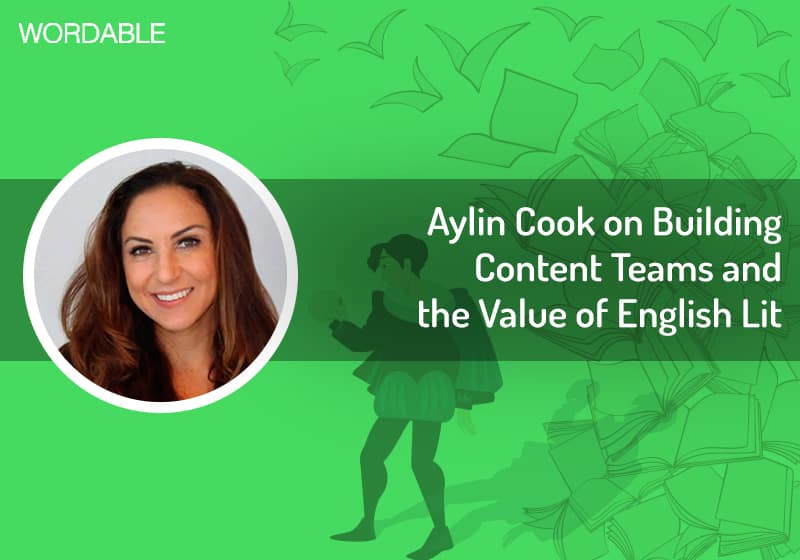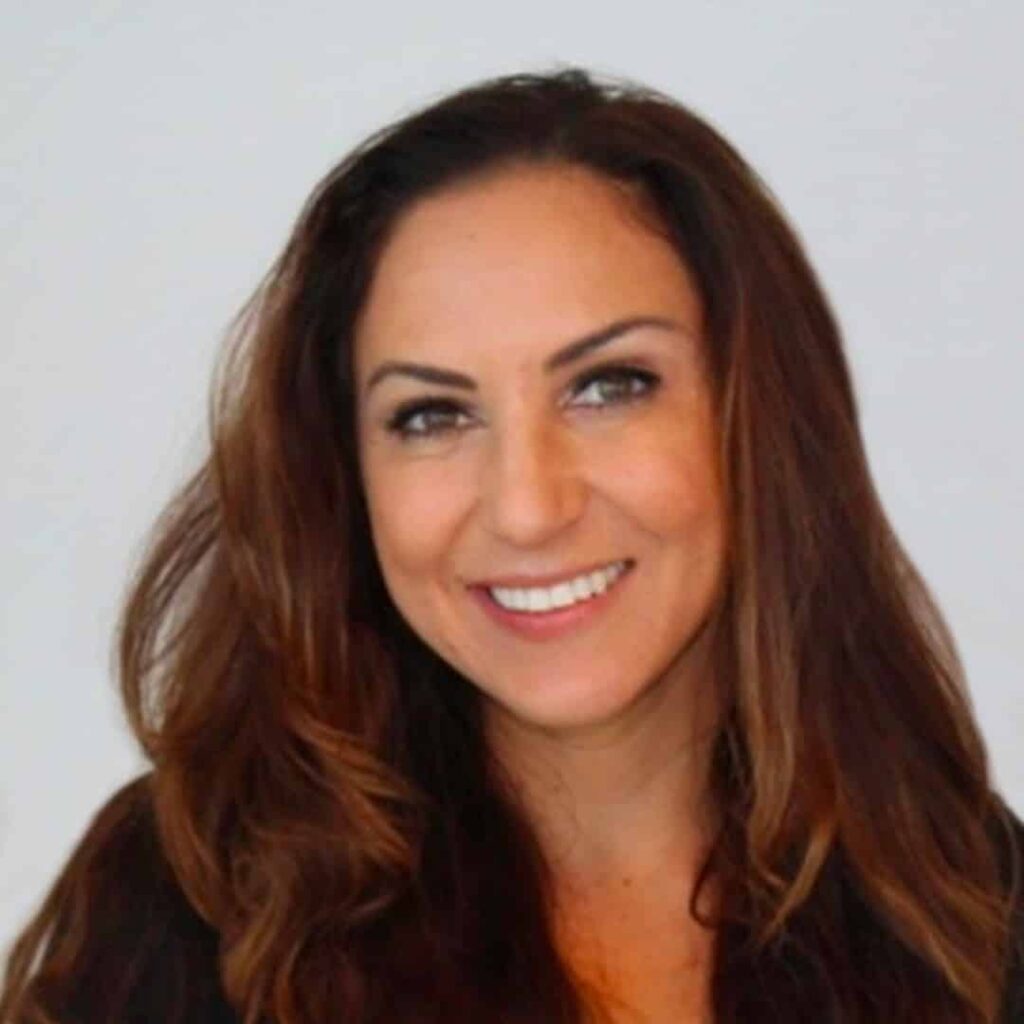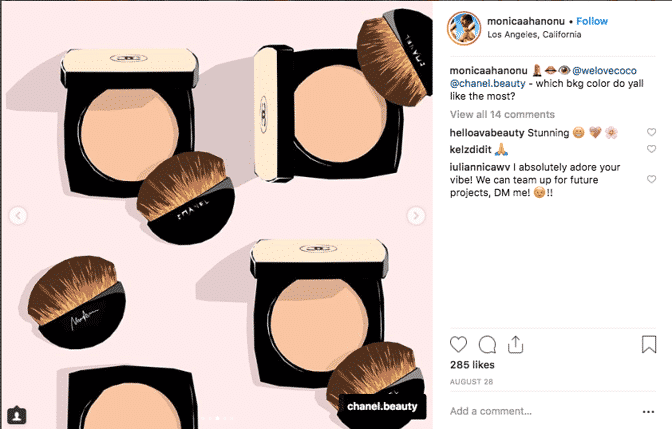
Content Crafters is an interview series where we de-construct the tools, tips, and tactics that top bloggers use to get so much work done. you’ll walk away in mere minutes with actionable takeaways you can try out right away. Let’s dive in!
Aylin Cook is currently the Head of Content Marketing at Single Grain, a digital marketing agency that has worked with clients like Uber, Airbnb, and Amazon.
With over a decade of content marketing experience, Aylin has built several successful content marketing programs at tech startups, SaaS companies, and digital marketing agencies.
She earned her M.F.A. in Creative Nonfiction from St. Mary’s College of California, and her B.A. in English Literature from the University of California, Berkeley.
When not working, she enjoys running on the beach (a block away from her house and office!) with her chihuahua, voraciously reading, listening to podcasts, and relaxing with a good British period mystery.
You can find her online at her personal website or LinkedIn.

I always wanted to be a rock star journalist/memoirist, so I got an MFA and started to write — for free, as young writers often do to build their portfolio — for some cool publications. I realized that working alone, hustling to get free work, and being home all day trying to get inspired and having writer’s’ block, didn’t work for my personality. It was kind of grueling and depressing (the alone part).
Through an old boss, I ended up getting a job in content marketing for a gaming startup in 2008 (Zynga was getting big and everyone in SF was trying to create a gaming platform). I loved it. I got to do the creative work, drive editorial direction, write, edit, but on a team.
I found that brainstorming with people was way more fulfilling for me than sitting at home racking my brain for topics. I also realized I liked working in marketing and tech. Marketing, branding, and the constant shifting of trends, interested me the way media had. Tech companies were full of innovative, fascinating people, who were constantly learning, growing, on the cusp of the new, great thing.
I never thought I’d end up in this career, and my parents warned me that my English lit degree and MFA would never pay off, but my literary background led me here — to a field which is challenging, meets my need to consume and create content, and is full of interesting people.
Thank you for that compliment re: my education! My engineer parents thought an English degree would never lead to lucrative work, and in retrospect it wasn’t the most practical decision, but I’m one of the only people I know actually using my degree.

Reading, writing, and critical thinking are, of course, crucial to content marketing, as is finding a narrative anywhere. Like even if you’re writing about the dryest topic, finding a narrative thread or analogy. Writing in an engaging, accessible way, developing an editorial brand, and being able to stick to the voice of the company.
In my English literary essays vs. my journalism work vs. memoirs/blog, I developed different voices — essays were formal, journalism was straightforward, well-researched, readable, and my memoirs/blog have an edgier, funnier voice and don’t really adhere to the formal writing standards I’d use in essays and articles.
It’s the same for companies. I’ve worked at a B2B tech company which marketed to beginning business owners and wanted to make their platform accessible to everyone, no matter how tech-savvy. I developed a fun, conversational, ‘you can do it!’ tone which made people feel like the brand was supporting them in their endeavors.
Working at another company which marketed to healthcare providers, I might stay away from an irreverent voice and stick to a professional, while still approachable, tone.
From there, I developed writing brand books, including stylistic standards (e.g. email vs. e-mail). It doesn’t look professional to use different grammar and spelling standards across your content so I was able to ‘enforce’ those brand guidelines.
I also use my editing skills, honed in many writing workshops. Once I have my brand voice, I can work with other writers to ensure they’re on brand, whether in-house or freelance.
The challenges include moving away from what my gut told me was interesting and moving toward data.
Am I writing on a particular topic or channel I’m SURE will be a hit, but the data shows isn’t successful with our audience? I have to move away from what fascinates me and move toward what works, which usually isn’t mutually exclusive.
Also, learning SEO, keyword research, conversion optimization, and all the different tools that go into successful content marketing. And managing a team; workshopping with a bunch of your peers is different than being a leader, having to make that final call.
My favorite period is anything from 1920 – 1940 or so, from either the Lost Generation or from England (I’m a HUGE anglophile).
My guilty pleasure is mysteries from that era — I have more ‘impressive’ answers, but my favorite author is Agatha Christie. I rediscovered my love for W. Somerset Maugham, Fitzgerald, Hemingway, Graham Greene, this year. I’m also a big fan of LA noir — James Ellroy, Chandler, Ross MacDonald.
As an English major, I have quite a few periods/authors I can’t stand, but I’d say Joyce is my least favorite. I did a senior seminar on Ulysses and it was definitely not my favorite. Any sort of philosophy. I want to love magical realism, but I’m never dying to keep reading any of the magical realism books.
My most recent read was Educated, by Tara Westover: enthralling! I highly recommend.
Personality-wise: constantly wanting to learn, voraciously consuming media, interest in pop culture, art, trends, zeitgeists. You have to stay on top of what’s happening in culture and media in order to be effective in the constantly evolving world of marketing.
Also, being democratic and collaborative.
I don’t think I know it all, or have a monopoly on trendsetting. I work with a lot of recent college grads, and they’re far more on top of it when it comes to social media trends and what’s new and hot. They also enjoy social media and community management, and that’s really not my personality. So I let them take it over; I love to delegate.
In content marketing, as in most aspects of business, it’s important to step back and let other people share their ideas — the ‘yes, and’ methodology. I can’t work in a vacuum, whether that’s completely taking over the content calendar, or not working with the customer-facing side of the business.
Skill set and background: learning to be a good writer and editor. Reading and writing enough that I’m able to develop an editorial voice for each business and niche. Having the hawk-eyes to ensure nothing goes out without being on brand, well-written, and copy-edited.
Also, working for this amount of time makes you a better manager, team support, to provide context and domain knowledge to your direct reports.
I absolutely think content marketing is industry agnostic. I’ve worked in content marketing for B2B SaaS small business marketing platforms, healthcare chatbots and marketing software, software for attorneys… you can really go anywhere with your content marketing skills.
For each new industry, it’s a matter of building domain expertise and getting to know the audience you’re targeting. You can do this by talking to customer-facing teams and learning about the industry. You can find industry experts and thought leaders to write pieces for you.
That being said, my experience in B2B SaaS has led to more and more jobs in that field. I’m able to adapt more quickly to a brand voice, processes, what you can and can’t talk about, etc…
Influencers posting only super, obviously sponsored content. I understand the need to make a living, but when every post has buy links, I feel like I don’t even know the personal taste or flair that made me follow them in the first place.

We have a specific set of directions in our content marketing job posts — a particular subject line you should use. If someone doesn’t follow that, we usually disqualify them because we want detail-oriented people who read the entire job posting and can follow direction. It shows that someone wants to work with us, and isn’t just blindly blasting out applications.
With our content writers, we first look at their writing samples to ensure they have the voice, domain knowledge, and understand what we’re looking for. When we assign them an article, we give them our Single Grain Writers’ Guidelines, and I’m looking for a first draft that clearly shows they read it. If they don’t, say, spell email the way we do or cite references that are actually recent, legit studies like we ask for, they aren’t using the Guidelines and I’ll have to do more work to re-edit their pieces.
Also, communication! Some freelance writers push back deadlines without letting us know… or they go MIA and pop up with a draft a week later! We publish six times/week, so we have to work with reliable, communicative writers.
Writing skills.
Working on your personal voice. Being a good storyteller, and a good copywriter. Following brand guidelines and understanding a brand voice.
We can get so hung up on the technical skills that we forget the basics of writing — a good title, an introduction that compels the writer to keep reading.
Also, either deep domain knowledge and spending the time to find research that backs up their points.
Yes – find processes that work for the team. They don’t have to be perfect — no process ever will be — but the entire team does have to commit so that we can get content out on time and fully QA-ed.
I’ve used blog tools like Google sheets, Trello, Asana… again, anything can work for an editorial calendar, but regardless of tool, the team has to stick to the process. And there’s always room for iteration, but it has to be an intentional decision that everyone understands. No going rogue.
I love brainstorming and editorial meetings (I know it’s in vogue to hate meetings, but I think creativity is best manifested when you’re not in a silo). I try to take a ‘Yes, and…’ approach to meetings. We’re a creative team, no one is ‘wrong’ — we should build on ideas rather than shut them down.
Talk to the rest of the teams. Content marketing can’t operate in a silo. I can’t know what our potential leads want the way our sales, customer success, or paid media team does. I regularly talk to them to find the real pain points and success gaps that our content should solve.
Also, and this seems trite but I’ve found it to be true — I want to work with team players, collaborators, and solution-oriented people. It’s so hard to work with someone who has a palpably negative attitude if they’re in a bad mood, someone who tries to hog the whole meeting, or take all the credit.

I’d rather have less experienced, but proactive, positive team members than an ‘expert’ who everyone is tiptoeing around.
If we’re talking pie in the sky, working as an Editor-in-Chief of my own magazine or blog, creating my own content, starting a podcast. Obviously I could do all those things now, but my life is so full outside of work that I keep putting those off.
I’d also love to work for a woman-centric organization — a very rewarding part of my job is mentoring young women. (Of course, men earlier in their career as well.) But I find there are career challenges specific to women, and I love sharing my experience and advice. I love being a cheerleader.
And, if I was insanely rich, traveling, reading everything, and opening a senior pit bull and chihuahua sanctuary.

Being a voracious consumer of all content, understanding shifts in marketing, letting go of ego and using data to decide if an idea’s actually working, and really loving content.
Also, as I said above, just having a positive, try-anything, team-centric attitude.
So many places! I’m obsessed with content, so I’m continually inspired. I have a giant queue of podcasts that inspire me:
Right now, I’m listening to Bad On Paper — two thirty-something fashion/beauty/lifestyle influencers sharing their lives, obsessions, the books they’re reading, great guests…
Also, reading — whether book, blog, or magazine — makes me a better writer.
My daily go-tos are The Hustle and The Daily Carnage newsletters, which give me all the most curated tech and marketing stories.